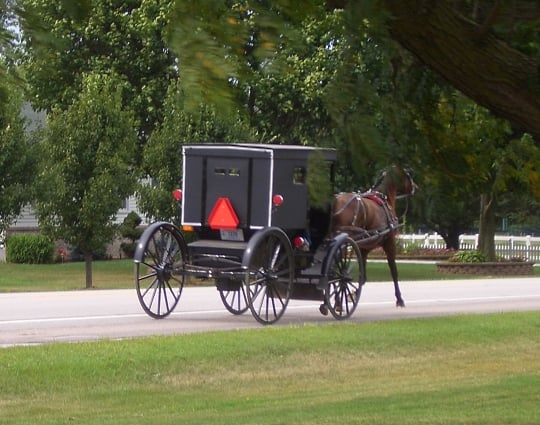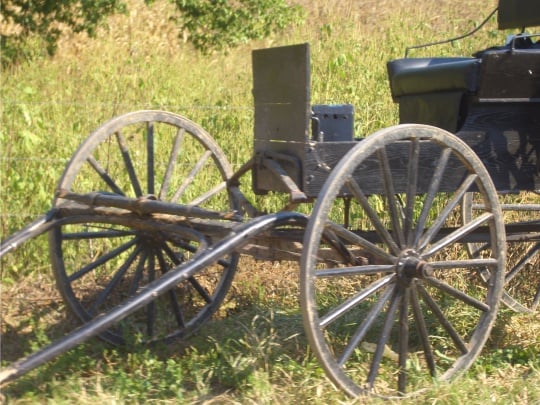Bush 41, Amish, Mennonites, and drugs
I recently came across a transcript from George Bush senior’s 1989 meeting with Mennonite and Amish leaders in Lancaster County. It’s interesting to read not only for those seeking late 80s era nostalgia but for the interesting dynamic between the President and the typically spotlight-shunning Amish and Mennonites as they take the stage in a very high-profile context.
The event is ostensibly about Bush meeting with Amish and Mennonites to celebrate as well as extract lessons from them on how they keep their communities clean of chemical influences.
Bush, accompanied by drug czar Bill Bennett and Attorney General Dick Thornburgh, on numerous occasions “salutes” the Mennonites and Amish, and–given typical plain sentiment about receiving accolades–at times perhaps a bit too strongly for comfort, at one point calling them “a shining example of what family and faith can do.”
While there may be truth to that statement, it also makes one wonder how comfortable the leaders were receiving such praise. The Mennonite leaders do the bulk of the talking, with the Amish commenting just a bit at the end. More recently, Amish were awkwardly thrust onto the world stage after the Nickel Mines shooting. Some at the time acknowledged that though they may not seek out the spotlight, the forgiveness example could have a positive influence on others. Perhaps it’s in that same spirit the Mennonites and Amish agreed to the forum with the President.
The Mennonite and Amish leaders push family values and the importance of the Bible throughout the meeting with Bush and his contingent acknowledging their importance. Bush, notably less outwardly religious than his son, nonetheless comes out strongly for prayer in schools, at the time a hotpoint issue.
The tone of the meeting is quite warm and there are a couple of humorous exchanges towards the end, as well as Bush sharing an interesting anecdote from his days as US emissary to China.
The ironic ‘ending’ to this story is of course the infamous 1998 Lancaster County drug bust when two young Amish men were caught dealing cocaine. The aftermath saw drug education meetings in the community as well as a move towards heavier adult involvement in Amish youth ‘gangs’. Later media such as the Devil’s Playground film and the Rumspringa book continued to put the lie to the idea of universally pristine, drug-free plain communities. At the same time it would be quite a stretch to take localized occurrences to portray the collective Amish as having a serious drug problem.





I’ve seen Devil’s Playground and instead of thinking how rotten those kids were and how clueless the Amish were, I thought, ‘Wow, that was really one-sided’. It was. I could find 4 “English” kids who do the same things probably, but most don’t. I think the Amish are people and some kids behave well and others don’t – that’s human nature – in any culture I’d say.
As for not wanting the spotlight, that is a conundrum. It’s like doing something anonymously – some people don’t want the praise and yet, showing others who is doing the good deed (time, money, etc.) sometimes spurs others along.